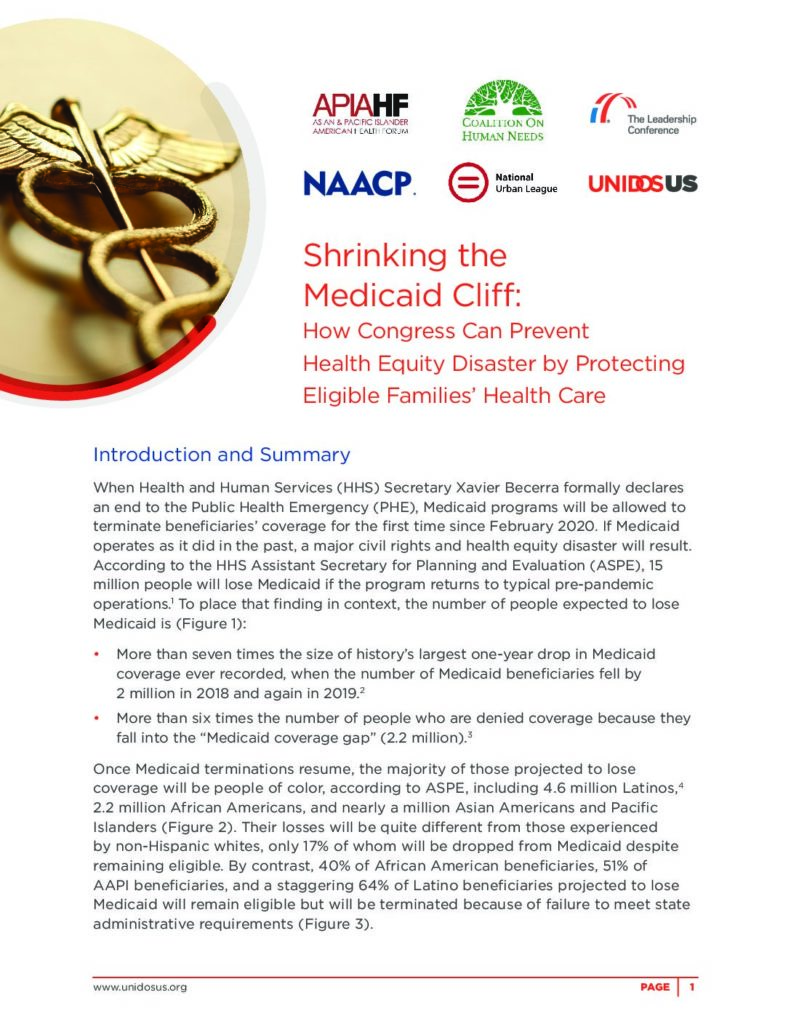Civil rights and social justice organizations published a report on Shrinking the Medicaid Cliff: How Congress Can Prevent Health Equity Disaster by Protecting Eligible Families’ Health Care.
When Health and Human Services (HHS) Secretary Xavier Becerra formally declares an end to the Public Health Emergency (PHE), Medicaid programs will be allowed to terminate beneficiaries’ coverage for the first time since February 2020. If Medicaid operates as it did in the past, a major civil rights and health equity disaster will result. According to the HHS Assistant Secretary for Planning and Evaluation (ASPE), 15 million people will lose Medicaid if the program returns to typical pre-pandemic operations.1 To place that finding in context, the number of people expected to lose Medicaid is:
• More than seven times the size of history’s largest one-year drop in Medicaid coverage ever recorded, when the number of Medicaid beneficiaries fell by 2 million in 2018 and again in 2019.
• More than six times the number of people who are denied coverage because they fall into the “Medicaid coverage gap” (2.2 million).
Once Medicaid terminations resume, the majority of those projected to lose coverage will be people of color, according to ASPE, including 4.6 million Latinos, 2.2 million African Americans, and nearly a million Asian Americans and Pacific Islanders. Their losses will be quite different from those experienced by non-Hispanic whites, only 17% of whom will be dropped from Medicaid despite remaining eligible. By contrast, 40% of African American beneficiaries, 51% of AAPI beneficiaries, and a staggering 64% of Latino beneficiaries projected to lose Medicaid will remain eligible but will be terminated because of failure to meet state administrative requirements.

